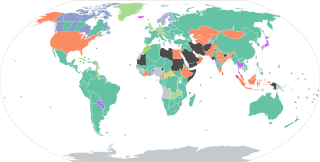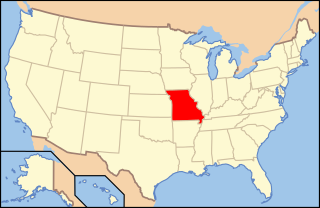Related Research Articles

Systembolaget, colloquially known as systemet or bolaget, is a government-owned chain of liquor stores in Sweden. It is the only retail store allowed to sell alcoholic beverages that contain more than 3.5% alcohol by volume. Systembolaget acts as a portal for private companies selling alcohol on the Swedish market and as of 2023, it represents 1,200 vendors ranging from small local breweries to large scale importers and multinational companies, selling products from a total of over 5,000 producers from all over the world.

The legal drinking age is the minimum age at which a person can legally consume alcoholic beverages. The minimum age alcohol can be legally consumed can be different from the age when it can be purchased in some countries. These laws vary between countries and many laws have exemptions or special circumstances. Most laws apply only to drinking alcohol in public places with alcohol consumption in the home being mostly unregulated. Some countries also have different age limits for different types of alcohol drinks.
In a bar, a last call is an announcement made shortly before the bar closes for the night, informing patrons of their last chance to buy alcoholic beverages. There are various means to make the signal, like ringing a bell, flashing the lights, or announcing verbally.

The Alberta Gaming, Liquor and Cannabis Commission (AGLC) is an agency of the government of the Canadian province of Alberta, and regulates alcoholic beverages, recreational cannabis, and gaming-related activities. References to cannabis were added to AGLC's name and governing legislation as cannabis in Canada moved towards legalization in 2018. AGLC was created in 1996 as the Alberta Gaming and Liquor Commission by combining the responsibilities and operations of the Alberta Liquor Control Board (ALCB), Alberta Lotteries, the Alberta Gaming Commission, Alberta Lotteries and Gaming and the Gaming Control Branch. The current chief executive officer as of 2020 is Kandice Machado.
The Washington State Liquor and Cannabis Board, formerly the Washington State Liquor Control Board, is an administrative agency of the State of Washington. The Liquor and Cannabis Board is part of the executive branch and reports to the Governor. The board's primary function is the licensing of on and off premises establishments which sell any type of alcohol, and the enforcement and education of the state's alcohol, tobacco, and cannabis laws.

The German laws regulating alcohol use and sale are mostly focused on youth protection. In contrast to many other countries, legislation is relatively lenient and not designed to keep young people away from alcohol, but rather intended to teach them an appropriate approach to alcohol consumption, which is reflected by one of the lowest drinking ages in the world.

Oklahoma allows any establishment with a beer and wine license to sell beer and wine up to 15% ABV, under refrigeration.

The alcohol laws of Missouri are among the most permissive in the United States. Missouri is known throughout the Midwest for its largely laissez-faire approach to alcohol regulation, in sharp contrast to the very strict alcohol laws of some of its neighbors, like Kansas and Oklahoma.

The alcohol laws of Kansas are among the strictest in the United States, in sharp contrast to its neighboring state of Missouri, and similar to its other neighboring state of Oklahoma. Legislation is enforced by the Kansas Division of Alcoholic Beverage Control.

Drug policy of California refers to the policy on various classes and kinds of drugs in the U.S. state of California. Cannabis possession has been legalized with the Adult Use of Marijuana Act, passed in November 2016, with recreational sales starting January of the next year. With respect to many controlled substances, terms such as illegal and prohibited do not include their authorized possession or sale as laid out by applicable laws.

Alcohol laws of New York are a set of laws specific to manufacturing, purchasing, serving, selling, and consuming alcohol in the state of New York. Combined with federal and local laws, as well as vendor policies, alcohol laws of New York determine the state's legal drinking age, the driving under the influence limit, liquor license requirements, server training, and more.

The alcohol laws of Pennsylvania contain many peculiarities not found in other states, and are considered some of the strictest regulations in the United States.
Alcohol laws of West Virginia are more complex on paper than in actual practice, owing to a provision of the state constitution and "work-arounds" of its terms.
Alcohol laws of Maryland vary considerably by county, due to the wide latitude of home rule granted to Maryland counties.

Alcohol laws are laws relating to manufacture, use, being under the influence of and sale of alcohol or alcoholic beverages. Common alcoholic beverages include beer, wine, (hard) cider, and distilled spirits. Definition of alcoholic beverage varies internationally, e.g., the United States defines an alcoholic beverage as "any beverage in liquid form which contains not less than one-half of one percent of alcohol by volume". Alcohol laws can restrict those who can produce alcohol, those who can buy it, when one can buy it, labelling and advertising, the types of alcoholic beverage that can be sold, where one can consume it, what activities are prohibited while intoxicated, and where one can buy it. In some cases, laws have even prohibited the use and sale of alcohol entirely.
The alcohol laws of Wisconsin consist of both statewide statutes and local ordinances governing the sale of alcohol.
Blue laws, also known as Sunday laws, are laws that restrict or ban some or all activities on specified days, particularly to promote the observance of a day of rest. Such laws may restrict shopping or ban sale of certain items on specific days. Blue laws are enforced in parts of the United States and Canada as well as some European countries, particularly in Austria, Germany, Switzerland, and Norway, keeping most stores closed on Sundays.

A person must be at least 15-17 years of age to publicly drink an alcoholic beverage in Texas, with some exceptions.
References
- ↑ Mitchell, Dawn; King, Robert (28 February 2018). "Cheers: The curious history of alcohol sales in Indiana". Indy Star. Retrieved 16 August 2018.
- ↑ "Sunday alcohol sales are now legal in Indiana". Archived from the original on 2019-01-14. Retrieved 2018-03-01.
- ↑ "Indiana Code Title 7.1. Alcohol and Tobacco IN CODE § 7.1-2-5-17 | FindLaw". Findlaw. Retrieved 2017-02-14.
- ↑ IC 7.1-3-5-3
- ↑ "Indiana Code Title 7.1. Alcohol and Tobacco IN CODE § 7.1-3-5-3".
- ↑ "Indiana Code Title 7.1. Alcohol and Tobacco IN CODE § 7.1-3-15-3".
- ↑ Indiana Senate panel votes against expanding cold beer sales - Brian Slodysko, Chicago Tribune, 17 January 2017
- ↑ "ISEP: Rules & Laws". IN.gov. Retrieved 2014-09-14.
- ↑ "Indiana ban on Christmas Day alcohol sales lifted". indystar.com. Retrieved 2015-11-22.
- ↑ "Indiana Code Title 7.1. Alcohol and Tobacco § 7.1-5-1-3". codes.findlaw.com.